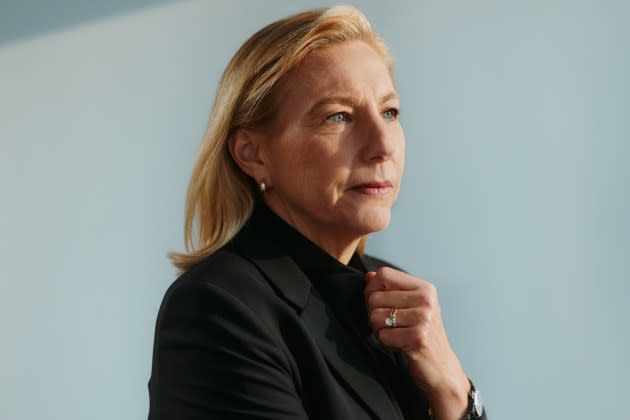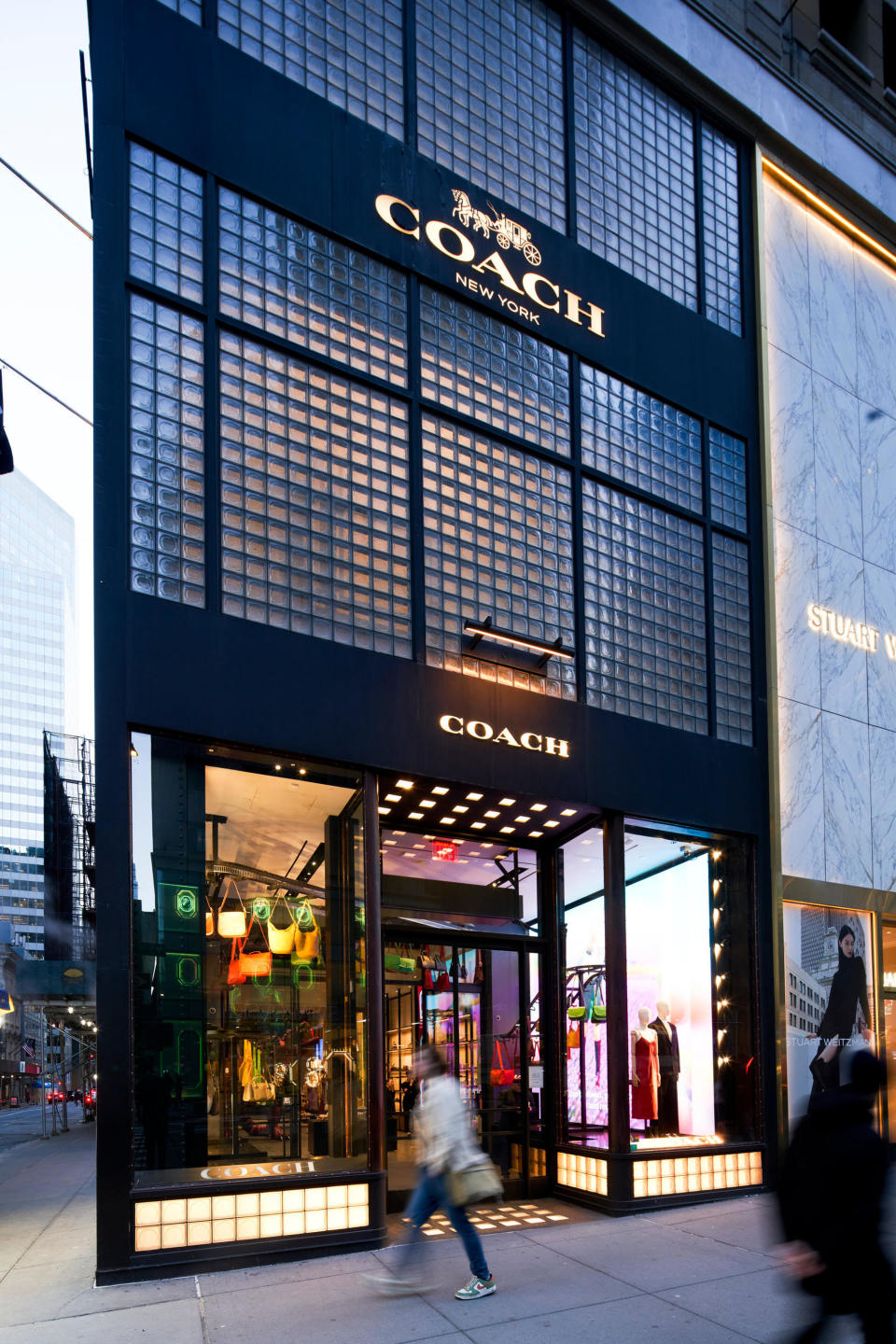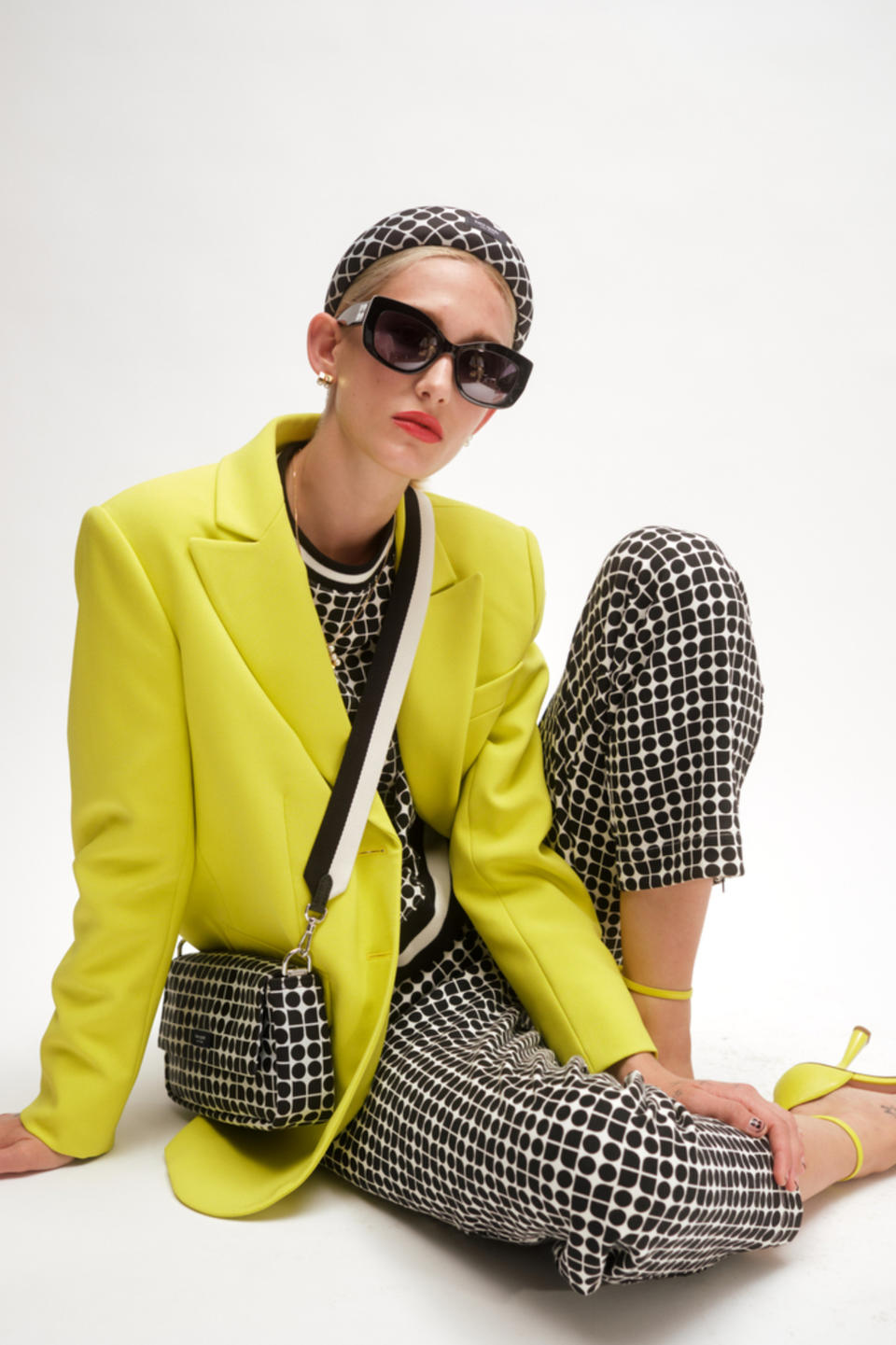Tapestry CEO Joanne Crevoiserat on Q3, Capri and the Consumer

Updated 4:16 P.M. E.T., May 9.
Joanne Crevoiserat might be wrestling with both the Federal Trade Commission and a cagier consumer, but she’s still feeling good about Tapestry Inc.’s prospects.
More from WWD
Prabal Gurung, Fern Mallis, Coach, Linda Fargo Among 2024 ACE Awards Winners
Tapestry Says FTC's Case Against $8.5B Capri Buyout 'Makes No Sense'
'Accessible Luxury' on Trial: Tapestry Pushes FTC to Define the Term
“We just delivered our third quarter with earnings growth above our expectations,” said Crevoiserat, who leads Tapestry as chief executive officer, in an interview with WWD. “That shows our commitment to brand building and operational excellence. We had a lot of wins, including the acquisition of over 1.2 million new customers, half of which are younger consumers, which bode well for our brands. We maintained our full year EPS outlook.”
But the quarterly report came with some pain, too.
Net earnings for the third quarter would have been up slightly if not for $51 million in professional fees and the cost to carry the debt necessary to fund Tapestry’s $8.5 billion deal to buy Capri Holdings, which is being challenged by the FTC. Ultimately, the company’s third-quarter net income slipped 25.3 percent to $139.4 million, or 60 cents a share.
Adjusted earnings took some of that edge off, coming in at 81 cents a share and handily beating the 68 cents analysts projected, according to FactSet.
Revenues for the three months ended March 30 decreased 1.8 percent to $1.48 billion from $1.51 billion amid what the company described as “a challenging consumer backdrop” in North America. The top-line forecast for the year was also trimmed with net revenues expected to be flat at $6.6 billion — below the $6.7 billion the company forecast in February.
Third-quarter sales in North America fell 3 percent and were partially offset by a 3 percent increase abroad, in constant currencies. Revenues in Europe rose 19 percent while Japan was up 2 percent and China was down 2 percent.
Crevoiserat said she is well aware of just how the dynamic market is right now, with consumer confidence sagging and inflation lingering.
“We are eyes wide open,” the CEO said. “We’re not immune to those dynamics. We have a prudent plan and [are] managing our business for healthy business long-term, protecting that long-term brand health. We’re confident in the runway for growth in the future.”
Crevoiserat said Tapestry, which owns Coach, Kate Spade and Stuart Weitzman, can build strong connections with shoppers even as the consumer landscape weakens.
“It’s great to play in a category that consumers have an emotional connection to,” she said. “So our core [handbag] category is one that consumers continue to engage with. They have an emotional connection, and it has kept the category resilient and durable through tough times. The category itself has grown midsingle digits historically very consistently. We expect that to continue and we see that in our brand tracking strong intent to purchase in our category.”
Tapestry has been successful at building up Coach, which logged sales of $1.1 billion in the quarter, a 2 percent rise in constant currencies. But Kate Spade, which isn’t backed up by the long history that Coach enjoys, hasn’t fared as well and saw its sales fall 5 percent in constant currencies to $280.7 million. Stuart Weitzman’s sales were down 17 percent in constant currencies to $56.1 million.
But Crevoiserat is bullish that the Coach playbook will work for Kate Spade, and, should the deal go through, Capri’s Michael Kors.

“We see tremendous opportunity to improve the execution at Michael Kors,” she said. “The brand awareness is very strong, brand equity is very strong and it’s globally scaled. We see tremendous opportunity to unlock value with this strong consumer awareness. We see an opportunity to bring more relevancy and more innovation to the brand.”
Scott Roe, chief financial officer and chief operating officer of Tapestry, added that the company’s data-savvy consumer insights platform can be brought to bear, and is sometimes underappreciated by the outside world.
“Our direct-to-consumer model, which gives us quick feedback loops, is helpful in many ways,” Roe said. “It helps us make better decisions, but we’re not infallible. We still don’t make all the right decisions, but when we miss, we see it quickly and we take action.”
Shares of Tapestry rose 3.6 percent to close at $40.37 on Thursday. But longer term, investors are likely focused less on the ins and outs of the quarter than on the fate of the potentially transformative deal to buy Capri.
Neil Saunders, managing director of GlobalData, said Tapestry “is running out of steam and its ability to punch out strong results is becoming increasingly inconsistent.
“Bringing on board Capri provides Tapestry with more levers it can pull to engineer better numbers,” Saunders said. “There is nothing wrong with this approach, even if the price offered for Capri is very toppy, but the intervention of the FTC into the case has thrown something of a wrench into the works.”
In its case against the acquisition, the FTC has argued that the buyout would make Tapestry a “colossus” in the accessible luxury handbag space with undue influence over the prices for consumers and employment in the sector.
“With the goal to become a serial acquirer, Tapestry seeks to acquire Capri to further entrench its stronghold in the fashion industry,” said Henry Liu, director of the FTC’s Bureau of Competition, when the case was launched last month.

Tapestry has clamped back hard, saying in recent court filings that the case against the acquisition “makes no sense.”
The company has pushed regulators to identify exactly how they are defining the accessible luxury handbag market and argued FTC is fundamentally misunderstanding how the fashion market works.
“There is no definable captive consumer of fashion handbags who cannot readily switch from brand to brand, across price ranges,” Tapestry said in court filings.
Crevoiserat still expects the deal to close this calendar year.
“Our original timeline always contemplated the potential for litigation,” she said. “Unfortunately, that’s where we find ourselves. We’re working very, very diligently to work through that process and look forward to closing this transaction. It deserves to close.”
Best of WWD

 Yahoo Finance
Yahoo Finance 